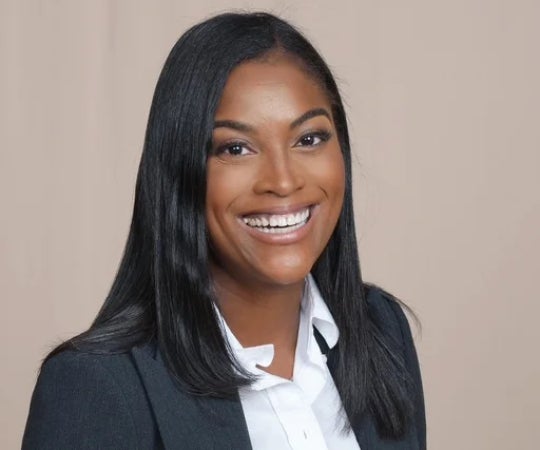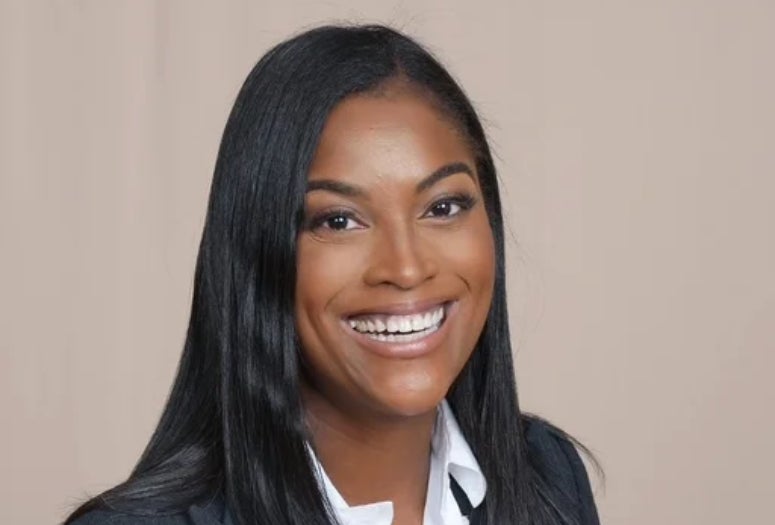
When students, faculty or staff at Rice University face a moment of crisis, one of the first people they may encounter is Nancy Vincent. As Rice’s first community behavioral specialist, Vincent brings a wealth of experience in crisis management, social work and mental health advocacy to campus, offering a vital resource for immediate intervention and long-term support.
“Nancy’s role is a crucial bridge for faculty, staff and students to receive important mental health counseling and victim services support,” said Clemente Rodriguez, chief of Rice Police Department. “These services are enhanced by her role, and we’ve already seen great success by her involvement with the Rice community.”
Vincent, a licensed master social worker, began her role at Rice in February. While she has worked extensively in child welfare, human trafficking prevention and adult mental health, this is her first time serving in higher education. Her mission at Rice is clear: to step in where support is needed most, helping to stabilize individuals in crisis and connecting them with the right resources.
From crisis to stability
Vincent’s work ranges from supporting students experiencing academic stress and mental health struggles to assisting staff in situations such as domestic violence or workplace decline due to personal crises. In one case, she arranged shelter and safety for an employee facing domestic violence, ensuring not only immediate protection but also workplace continuity through the Family and Medical Leave Act support. In another, she collaborated with the Rice Police Department to carry out an emergency detention order when a student displayed concerning behavior, ensuring both the student’s safety and that of the broader campus community.
“No two cases are alike,” Vincent said. “Every situation is different, but the goal is always the same: to help someone move from a place of crisis to a place of stability.”
A human-centered approach
Central to Vincent’s work is building trust. She emphasizes meeting individuals where they are, listening without judgment and creating safe environments — whether that means accompanying someone to a counseling session, taking them out for coffee or simply staying with them until their immediate needs are met.
“Part of being a social worker is showing people that they matter and that we’re here to help, not to punish or push them away,” she said.
Her flexible schedule and proximity to campus allow her to respond quickly when crises emerge. “A crisis can’t wait,” Vincent said. “That’s why I moved closer to campus — so I can be available when I’m needed most.”
Defining success and long-term impact
For Vincent, success isn’t measured by solving every problem completely but by ensuring that each person leaves an encounter better supported than before. Sometimes that means guiding someone to medical leave, connecting them to the Rice Counseling Center or helping an employee navigate short-term disability. Other times, success is simply providing resources, encouragement and presence during a difficult moment.
She also sees her role as part of a larger cultural shift on campus: normalizing conversations about behavioral health and reinforcing that students, faculty and staff are not alone.
“I want people to know they have a resource in their back pocket,” Vincent said. “We’re here for them through the immediate crisis and for the long haul.”
Looking ahead
With Rice’s student body continuing to grow, Vincent envisions expanding the community behavioral specialist program in the future, adding additional staff or case managers to meet rising needs. Her ultimate goal is to foster a healthier, more resilient campus community where well-being is supported at every level.
“I believe in the human spirit,” Vincent said. “Life can knock you down, but with the right support and resources, you don’t have to stay down. My job is to help people get back up and become the best version of themselves.”

